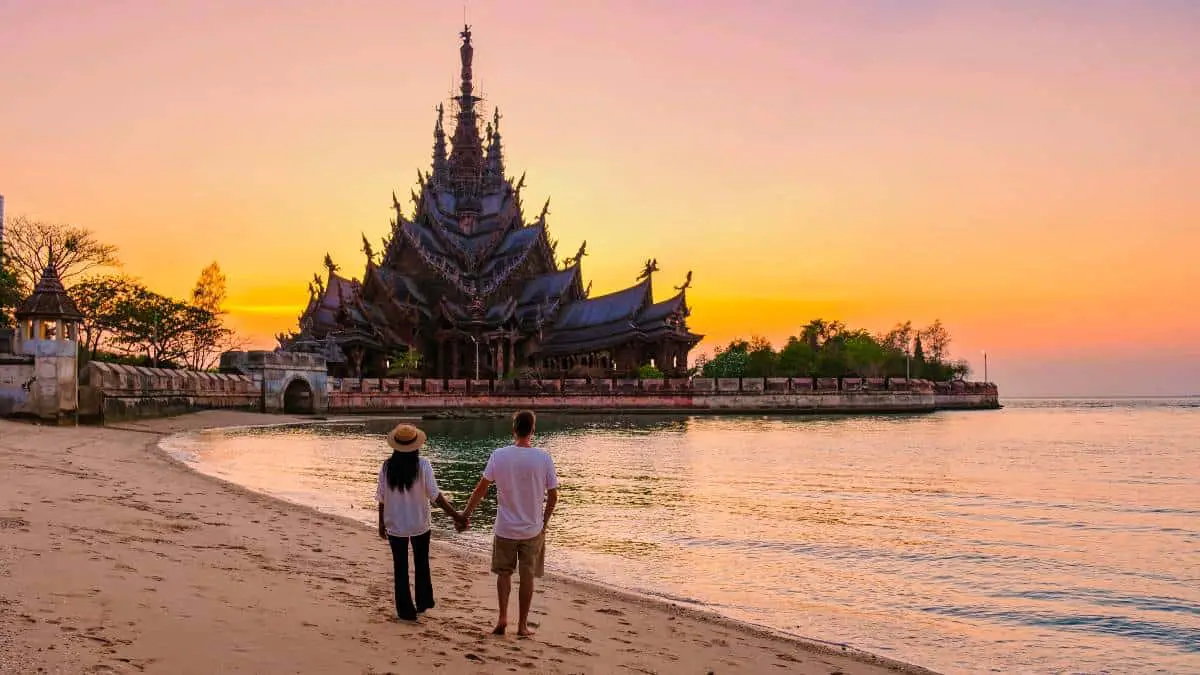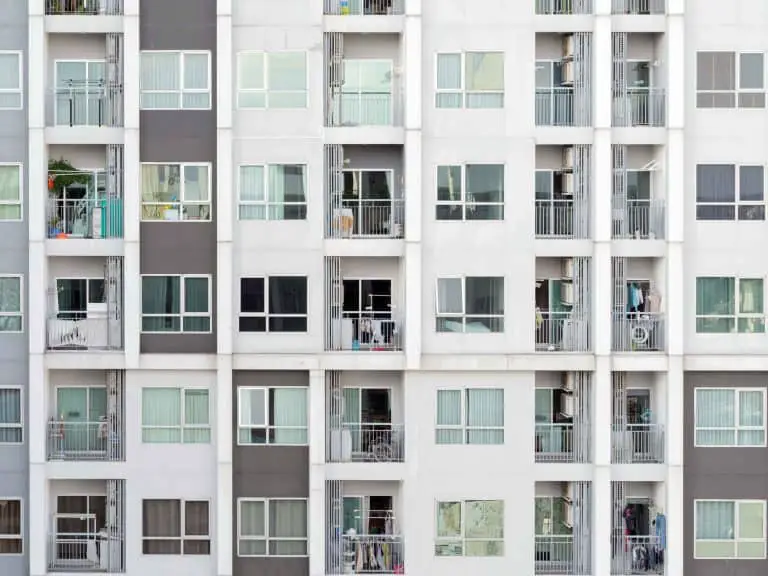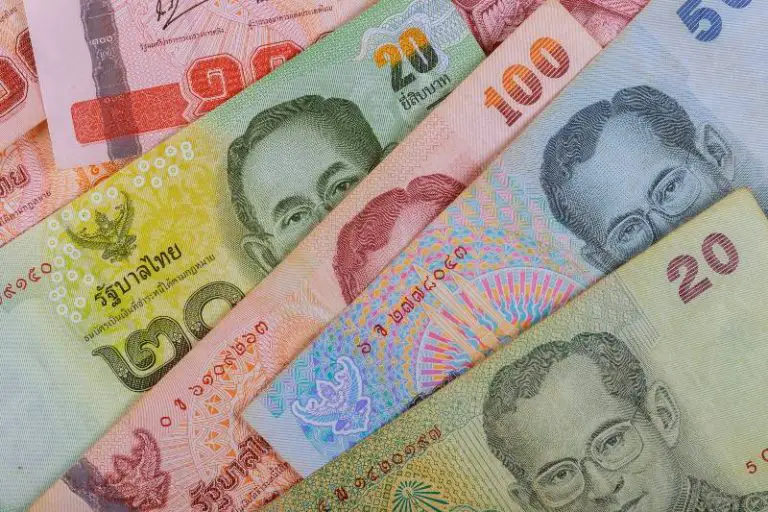Retirement Plan Thailand Relocation with Retirement Visa
Thailand, the Land of Smiles, is a country where golden temples shimmer under the tropical sun and the aroma of spicy street food wafts through bustling markets. As someone who’s traded the fast-paced American life for the laid-back Thai lifestyle, I can tell you that retiring in Thailand is like opening a treasure chest of new experiences.
Relocating for retirement isn’t just about packing your bags and hopping on a plane. It’s a journey that requires careful planning, a dash of adventure, and a willingness to embrace a new culture. That’s why we at BetterLivingAsia.com have put together this comprehensive guide to help you navigate the exciting world of retirement planning and relocation in Thailand. This comprehensive guide offers practical information on various aspects of long-term living in Thailand, including visas, housing, and healthcare.
Whether you’re dreaming of lazy days on Phuket’s beaches or exploring the vibrant streets of Bangkok, we’ve got you covered. So, let’s dive into the ins and outs of making Thailand your retirement paradise!
Key Takeaways
- Thailand offers diverse retirement visa options, including the Non-Immigrant O Visa and Thailand Privilege Card, catering to various needs and budgets.
- Popular retirement destinations like Chiang Mai, Phuket, and Bangkok provide unique lifestyles, from serene mountains to bustling city life.
- Understanding legal considerations, healthcare options, and cultural adaptation is crucial for a smooth transition to retirement in Thailand.
Understanding Thai Retirement Visa Options
When it comes to visa options for retirees in Thailand, you have several choices to consider. Let’s explore the main contenders:
The Non-Immigrant O Visa is your basic retirement visa option. It’s straightforward and gets you where you need to go without too much fuss. To be eligible, you need to be 50 years or older and meet certain financial requirements. This visa is valid for one year and can be renewed.
Next, we have the Non-Immigrant OA Visa. Think of this as the O Visa’s more sophisticated cousin. It’s for those who like to plan ahead and don’t mind a bit more paperwork. The eligibility and financial requirements are similar to the O Visa, but it also requires health insurance.
For those who want to retire in style, there’s the Thailand Privilege Card. This option offers more perks and less hassle. There’s no age restriction, and it provides long-term residency for 5-20 years, depending on the package you choose. However, it does come with a higher price tag.
Each option has its pros and cons, much like choosing between different Thai dishes. The key is to find the visa that fits your retirement dreams and budget.
Financial Planning for Retirement in Thailand
Financial planning for your Thai retirement is crucial, and you’ll be pleased to know that your money can stretch quite far here. Let’s break down some key aspects:
The cost of living in Thailand can be surprisingly affordable. A comfortable lifestyle, including accommodation, food, transportation, and entertainment, can often be maintained for significantly less than in many Western countries.
When it comes to retirement visa financial requirements, you’ll need to demonstrate either a substantial bank deposit, a steady monthly income, or a combination of both. This ensures that you have the means to support yourself during your retirement.
Thai banks are generally welcoming to expatriates, but be prepared for some paperwork when setting up accounts. As for currency, the Thai Baht has been relatively stable, but it’s wise to keep some funds in your home currency as a safety net.
Health insurance is a must, and prices can vary widely. It’s important to budget for a comprehensive plan to ensure you’re covered for any medical needs. Many hospitals in Thailand offer excellent service, often comparable to high-end hotels in terms of comfort and care.
When budgeting for your long-term stay, think of it as creating a balanced meal plan. Factor in occasional trips home, visa renewals, and those little luxuries that make retirement special. With careful planning, you can enjoy a comfortable lifestyle in most areas of Thailand.
Popular Retirement Destinations in Thailand
Thailand offers a variety of destinations, each with its own unique charm. Let’s explore some popular spots:
Bangkok, affectionately known as the Big Mango among expatriates, is a city that never sleeps. It offers world-class amenities, excellent healthcare, and a vibrant expatriate community. However, it also comes with challenges like traffic and higher living costs.
Nestled in the mountains, Chiang Mai is a cultural paradise. It boasts a lower cost of living, a cooler climate, and rich cultural experiences. The downside? Seasonal air quality issues and a smaller expatriate community.
For those dreaming of island living, Phuket offers beautiful beaches and a laid-back lifestyle. It has an international atmosphere and good healthcare facilities. However, it can be pricier than other areas, and some parts can get crowded during peak tourist seasons.
Pattaya, a coastal city known for its nightlife, also has a growing retirement community. It’s affordable and close to Bangkok, with plenty of entertainment options. However, it might be too lively for some, and it has a mixed reputation.
Hua Hin, a royal resort town, is becoming increasingly popular with retirees. It offers quiet beaches, golf courses, and proximity to Bangkok. Some might find it a bit sleepy, but for many, that’s part of its charm.
Keep an eye on emerging hotspots like Koh Samui for island living or Krabi for a more laid-back coastal vibe. These destinations offer the chance to be part of a growing expatriate community while enjoying a more authentic Thai experience.

Legal Considerations and Procedures
Navigating Thai legal waters requires patience and attention to detail. Here’s what you need to know:
The visa application process involves choosing your visa type, gathering required documents (including financial proof and medical certificates), applying at a Thai embassy or consulate in your home country, and then reporting to immigration once you enter Thailand.
When it comes to property ownership, foreigners can’t own land in Thailand, but there are options. You can own condominiums (up to 49% of the building can be foreign-owned) or lease land long-term (typically 30 years, renewable). Some expatriates set up Thai companies to purchase property, but this is complex and not recommended for most retirees.
On the tax front, there’s good news: Thailand doesn’t tax foreign-sourced income. However, if you work in Thailand, even part-time, you’ll need to pay Thai taxes. It’s wise to consult with a tax professional to understand your specific situation.
Regarding work restrictions, retirement visas don’t allow you to work, but you can volunteer. If you want to work, you’ll need a work permit and a different visa category. Remember, Thailand aims to protect jobs for its citizens, so working opportunities for retirees are limited.
Healthcare and Wellness in Thailand
Thailand’s healthcare system is a blend of traditional practices and modern medicine, offering retirees a range of options for maintaining their health and well-being.
The Thai healthcare system consists of both public and private facilities. In major cities, you’ll find hospitals that rival those in developed countries, complete with interpreters and international-standard care. Many retirees choose to combine their medical needs with leisure, taking advantage of Thailand’s growing medical tourism industry.
Popular treatments for medical tourists include dental work, comprehensive health check-ups, cosmetic procedures, and orthopedic treatments. The combination of high-quality care and affordable prices makes Thailand an attractive destination for these services.
When it comes to health insurance, retirees have several options, ranging from local Thai insurance to international coverage. It’s important to carefully review policies to ensure they meet your specific needs and provide adequate coverage for your chosen lifestyle in Thailand.
Beyond traditional medicine, Thailand is a paradise for those interested in wellness and alternative practices. Thai massage, meditation retreats, yoga classes, and traditional Thai medicine are readily available and can be excellent complements to conventional healthcare. However, it’s always wise to consult with a qualified healthcare professional before trying new treatments or practices.
Lifestyle and Cultural Adaptation
Moving to Thailand is an exciting adventure, but it also requires adapting to a new culture and way of life. Understanding and respecting Thai customs is key to a smooth transition.
Thai culture and etiquette are deeply rooted in respect and politeness. Learning the wai (Thai greeting), showing respect for the royal family, dressing modestly (especially in temples), and removing shoes before entering homes and some businesses are important aspects of Thai culture to embrace.
While English is widely spoken in tourist areas, learning basic Thai phrases can greatly enhance the experience and facilitate interactions with locals. Simple phrases like “Sawadee khrap/ka” (Hello), “Khop khun khrap/ka” (Thank you), and “Mai pen rai” (No worries/You’re welcome) can go a long way in daily interactions and show your effort to integrate.
Joining expatriate communities can ease your transition. Look for Facebook groups, Meetup.com events, and local expatriate clubs in your area. These groups can provide valuable support, information, and social connections as you settle into your new life.
Thailand’s climate is generally hot and humid, with three main seasons: hot (March-May), rainy (June-October), and cool (November-February). Be prepared for occasional flooding during the rainy season and potential air quality issues during the burning season in the north.
Many retirees find fulfillment in volunteering opportunities. Teaching English, supporting animal welfare organizations, or participating in environmental conservation projects are great ways to give back to your new community and deepen your connection to Thailand.
Practical Aspects of Relocation
Moving to Thailand involves many practical considerations that can make your transition smoother and more enjoyable. Let’s explore some key aspects:
When it comes to finding accommodation, you have several options. Many retirees start with rentals, which offer flexibility as you explore different areas. If you’re looking to purchase property, remember that foreigners are limited to buying condominiums. Starting with a short-term rental can be a wise move, allowing you to get a feel for different areas before making a long-term commitment.
Transportation in Thailand varies depending on where you choose to live. In Bangkok, you’ll find excellent public transport options with the BTS Skytrain and MRT subway systems. In other areas, taxis and ride-hailing apps are convenient and affordable. Some retirees enjoy the freedom of having their own vehicle, but it’s worth considering the challenges of driving in Thai traffic before making this decision.
Setting up utilities and communication services is generally straightforward, though you might need assistance with Thai language forms. Mobile plans are easy to obtain and offer affordable data packages. High-speed internet is available in most urban areas, making it easy to stay connected with friends and family back home.
For daily living essentials, you’ll find a mix of local markets and international supermarkets for groceries. Bringing your own reusable bags is common practice in Thailand and helps reduce plastic waste. Department stores and local shops offer a wide range of household items.
If you’re planning to bring your pet to Thailand, there are specific regulations to follow. You’ll need an import permit, vaccinations, and health certificates. Some pets may need to undergo quarantine upon arrival. Once in Thailand, you’ll find that pet ownership is generally welcomed, but it’s important to be mindful of local attitudes towards animals.
Long-term Considerations
As you settle into your new life in Thailand, there are several long-term factors to keep in mind:
The visa renewal process is an annual requirement for most retirees. It’s wise to start the process 1-2 months before your visa expires. Stay informed about any changes in regulations, as immigration rules can be subject to updates.
While Thailand may feel like paradise, it’s important to have a repatriation plan. Maintain ties with your home country, keep some assets easily accessible, and stay informed about your home country’s policies for returning citizens. This ensures you have options if your circumstances change.
Estate planning is not the most exciting topic, but it’s crucial for expatriates. Consider having both Thai and home country wills, and familiarize yourself with Thai inheritance laws. Consulting with a legal professional who specializes in expatriate affairs can provide peace of mind and ensure your wishes are properly documented.
Managing relationships with your home country is also important. Regular video calls with family and friends, annual visits home (or inviting them to Thailand), and staying engaged with important events back home can help maintain strong connections despite the distance.

Technology and Connectivity for Retirees
In today’s digital age, staying connected is easier than ever, even when you’re halfway around the world. Thailand offers excellent technological infrastructure to keep you linked to loved ones and manage your affairs:
Internet and mobile services in Thailand are widely available and affordable. High-speed internet is common in urban areas, and you’ll find free Wi-Fi in many cafes and shopping centers. Mobile data plans are competitively priced, allowing you to stay connected on the go.
For digital banking and money transfers, most Thai banks offer user-friendly mobile apps that make managing your finances simple. International transfer services like Wise (formerly TransferWise) are popular among expatriates for moving money between countries. Some banks even offer specific expatriate banking services tailored to the needs of foreign retirees.
Staying connected with family abroad is simple with various video calling apps like Skype, FaceTime, and WhatsApp. Social media platforms allow you to share your Thai adventures with friends and family. If you need to access geo-restricted content from your home country, consider using a VPN service.
Comparison with Other Popular Retirement Destinations
While Thailand is a fantastic retirement destination, it’s worth comparing it to other popular options to ensure it’s the right fit for you:
Thailand offers a low cost of living compared to many Western countries, allowing retirees to enjoy a comfortable lifestyle on a modest budget. The healthcare system, particularly in major cities, is excellent and often more affordable than in the West.
When it comes to visa ease, Thailand’s requirements are moderate compared to some other countries. Places like Malaysia and the Philippines often have easier visa processes for retirees, while Portugal in Europe is known for its friendly retirement visa program.
Thailand’s tropical climate is a draw for many, offering warm weather year-round. This is similar to Malaysia and the Philippines, while Portugal offers a Mediterranean climate with milder winters.
English proficiency in Thailand is moderate, with many people in tourist areas and major cities speaking some English. However, countries like Malaysia and the Philippines generally have higher levels of English proficiency, which can make daily life easier for some retirees.
FAQs
What are the financial requirements for a retirement visa in Thailand?
For a retirement visa, you typically need either 800,000 THB in a Thai bank account, a monthly income of 65,000 THB, or a combination of both totaling 800,000 THB annually. These funds need to be maintained throughout your stay.
Can I own property in Thailand as a foreign retiree?
As a foreign retiree, you can own condominiums outright, but you cannot own land. Many retirees opt for long-term leases (typically 30 years, renewable) for houses and villas. It’s important to consult with a legal professional before making any property investments.
How does the Thai healthcare system compare to Western countries?
Thailand offers high-quality healthcare, especially in private hospitals in major cities, often at a fraction of the cost of Western countries. Many hospitals are internationally accredited and have English-speaking staff. However, it’s crucial to have comprehensive health insurance to cover any medical needs.
What are the best areas in Thailand for expatriate retirees?
Popular areas include Chiang Mai for its culture and lower cost of living, Phuket for beach living, Bangkok for urban amenities, and Hua Hin for a quieter coastal lifestyle. The best area depends on your personal preferences, budget, and desired lifestyle.
How often do I need to report to Thai immigration on a retirement visa?
Retirees must report to immigration every 90 days. This can be done in person, by mail, or online in some cases. It’s a straightforward process but requires diligence to maintain your legal status in Thailand.
Conclusion
As you can see, retiring in Thailand is an exciting journey filled with opportunities and new experiences. From vibrant cities to tranquil beaches, there’s a perfect spot for every retiree. While the process might seem daunting at first, remember that countless expats have successfully made this transition.
Every retirement story is unique, and you probably have questions specific to your situation. Whether you’re wondering about visa requirements, curious about the best areas to live, or just want to chat about life in Thailand, I’m here to help. Don’t hesitate to reach out!






